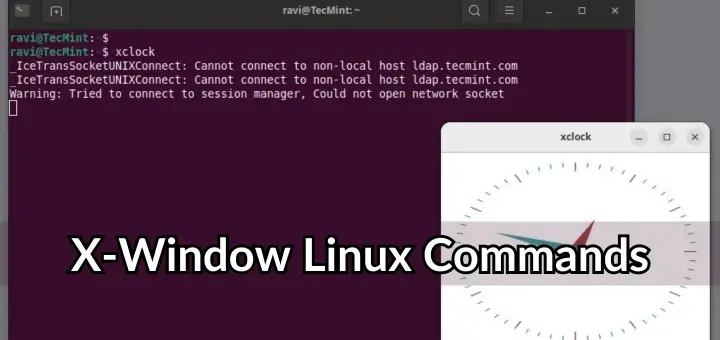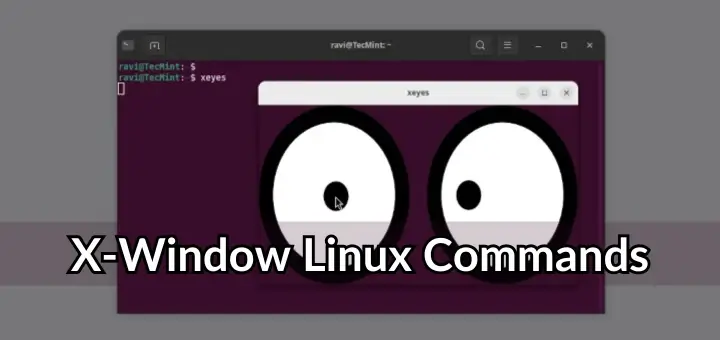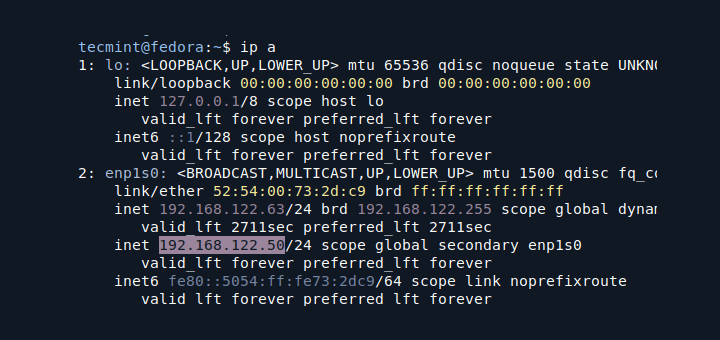After four highly appreciated and such a successful series of Articles on “Lesser Known Linux Commands” we are here presenting you the last article on this series, obviously not the least. The previous articles are:

- 11 Lesser Known Useful Linux Commands – Part I
- 10 Lesser Known Linux Commands – Part II
- 10 Lesser Known Commands for Linux – Part III
- 10 Lesser Known Effective Linux Commands – Part IV
42. lsb_release
The command ‘lsb_release‘ print distribution-specific information. If lsb_release is not installed, you can apt ‘lsb-core‘ on Debian or yum ‘redhat-lsb‘ on Red Hat the package.
# lsb_release -a LSB Version: :base-4.0-ia32:base-4.0-noarch:core-4.0-ia32:core-4.0-noarch:graphics-4.0-ia32: Distributor ID: CentOS Description: CentOS release 6.3 (Final) Release: 6.3 Codename: Final
Note: Option ‘-a‘, shows all the available information in respect of version, id, description, release and codename.
43. nc -zv localhost 80
Check if port 80 is open or not. We can replace ‘80‘ with any other port number to check if it is opened or closed.
$ nc -zv localhost 80 Connection to localhost 80 port [tcp/http] succeeded!
Check if port 8080 is open or not.
$ nc -zv localhost 8080 nc: connect to localhost port 8080 (tcp) failed: Connection refused
44. curl ipinfo.io
The below command will output the ‘Geographical Location‘ of the IP address, provided.
$ curl ipinfo.io "ip": "xx.xx.xx.xx", "hostname": "triband-del-aa.bbb.cc.ddd.bol.net.in", "city": null, "region": null, "country": "IN", "loc": "20,77", "org": "AS17813 Mahanagar Telephone Nigam Ltd."
45. find . -user root
The below command output the files with respect of the user (root) owned files. All the files owned by user ‘root’ in the current directory.
# find . -user root ./.recently-used.xbel ./.mysql_history ./.aptitude ./.aptitude/config ./.aptitude/cache ./.bluefish ./.bluefish/session-2.0 ./.bluefish/autosave ./.bash_history
All the files owned by user ‘avi‘ in the current directory.
# find . -user avi ./.cache/chromium/Cache/f_002b66 ./.cache/chromium/Cache/f_001719 ./.cache/chromium/Cache/f_001262 ./.cache/chromium/Cache/f_000544 ./.cache/chromium/Cache/f_002e40 ./.cache/chromium/Cache/f_00119a ./.cache/chromium/Cache/f_0014fc ./.cache/chromium/Cache/f_001b52 ./.cache/chromium/Cache/f_00198d ./.cache/chromium/Cache/f_003680
46. sudo apt-get build-dep ffmpeg
The below command will build the dependency, automatically during the corresponding package installation. Hence the process of package installation is very much fluent and easy.
# apt-get build-dep ffmpeg libxinerama-dev libxml-namespacesupport-perl libxml-sax-expat-perl libxml-sax-perl libxml-simple-perl libxrandr-dev libxrender-dev x11proto-render-dev x11proto-xinerama-dev xulrunner-dev The following packages will be upgraded: libpixman-1-0 1 upgraded, 143 newly installed, 0 to remove and 6 not upgraded. Need to get 205 MB of archives. After this operation, 448 MB of additional disk space will be used. Do you want to continue [Y/n]?
47. lsof -iTCP:80 -sTCP:LISTEN
The below command outputs, name of process/service using a specific port 80. To better understand run the following command on port 80, it will list all services/processes running on port.
root@localhost:/home/avi# lsof -iTCP:80 -sTCP:LISTEN COMMAND PID USER FD TYPE DEVICE SIZE/OFF NODE NAME apache2 1566 root 5u IPv6 5805 0t0 TCP *:www (LISTEN) apache2 1664 www-data 5u IPv6 5805 0t0 TCP *:www (LISTEN) apache2 1665 www-data 5u IPv6 5805 0t0 TCP *:www (LISTEN) apache2 1666 www-data 5u IPv6 5805 0t0 TCP *:www (LISTEN) apache2 1667 www-data 5u IPv6 5805 0t0 TCP *:www (LISTEN) apache2 1668 www-data 5u IPv6 5805 0t0 TCP *:www (LISTEN)
Same way, you can also check the running services/processes of port 22.
root@localhost:/home/avi# lsof -iTCP:22 -sTCP:LISTEN COMMAND PID USER FD TYPE DEVICE SIZE/OFF NODE NAME sshd 2261 root 3u IPv4 8366 0t0 TCP *:ssh (LISTEN) sshd 2261 root 4u IPv6 8369 0t0 TCP *:ssh (LISTEN)
48. find -size +100M
The find command lists all the files in the current directory above the specified size (here 100 MB), recursively.
# find -size +100M ./.local/share/Trash/files/linuxmint-15-cinnamon-dvd-32bit.iso ./Downloads/Fedora-Live-Desktop-i686-19-1.iso ./Downloads/Ant Videos/shakira 2.avi ./Downloads/Deewar.avi ./Desktop/101MSDCF/MOV02224.AVI ./Desktop/101MSDCF/MOV02020.AVI ./Desktop/101MSDCF/MOV00406.MP4 ./Desktop/squeeze.iso
Listing all the files whose size if more than 1000 MB, within current directory, recursively.
root@localhost:/home/avi# find -size +1000M ./Downloads/The Dark Knight 2008 hindi BRRip 720p/The Dark Knight.mkv.part ./Downloads/Saudagar - (1991) - DVDRiP - x264 - AAC 5.1 - Chapters - Esubs - [DDR]/Saudagar - (1991) - DVDRiP - x264 - AAC 5.1 - Chapters - Esubs - [DDR].mkv ./Downloads/Deewar.avi ./Desktop/squeeze.iso
49. pdftk
The pdftk command merges several pdf files into one. You must have installed pdftk program. If not, do apt or yum to get the required package.
$ pdftk 1.pdf 2.pdf 3.pdf …. 10.pdf cat output merged.pdf
50. ps -LF -u user_name
The below command outputs processes and threads of a user. The option “L” (list threads) and “-F” (Full Format Listing).
$ ps -LF -u avi avi 21645 3717 21766 0 5 66168 117164 1 18:58 ? 00:00:00 /usr/ avi 21645 3717 21768 0 5 66168 117164 1 18:58 ? 00:00:00 /usr/ avi 22314 3717 22314 0 2 42797 50332 0 19:00 ? 00:00:40 /usr/ avi 22314 3717 22316 0 2 42797 50332 1 19:00 ? 00:00:00 /usr/ avi 22678 24621 22678 0 1 969 1060 1 21:05 pts/1 00:00:00 ps -L avi 23051 3717 23051 0 2 37583 45444 1 19:03 ? 00:00:52 /usr/ avi 23051 3717 23053 0 2 37583 45444 0 19:03 ? 00:00:03 /usr/ avi 23652 1 23652 0 2 22092 12520 0 19:06 ? 00:00:22 gnome avi 23652 1 23655 0 2 22092 12520 0 19:06 ? 00:00:00 gnome
51. Startx — :1
Sharing X session, means frequently logging in and out, this is where the Startx command comes to rescue. The command creates a new session thus no need to login and logout frequently from a session. In order to switch between the two X session, we need to switch between ‘ctrl+Alt+F7‘ and ‘ctrl+Alt+F8‘.
Note: The keys “ctrl+Alt+F1“, “ctrl+Alt+F6” is for console session, and “ctrl+Alt+F7“, “ctrl+Alt+F12” is for X session. Hence 6 console session and 6 X session, without frequent logging-in and out. The above sequence works on most of the distro, however different distro may have implemented it differently. I have checked it on Debian, and it works perfectly fine.
That’s all for now. We will be keep coming up with other lesser know commands and one liner script as required, in future articles. Do not forget to give your valueable feedback about our article and series ‘Lesser Known Linux Commands‘. I am coming with my next article very soon, till then, stay healthy, tuned and connected to Tecmint.








Great series of articles. Well done and thank you.
Real Nice. Read and bookmarked all… Thanks for the post.
Very Excellent Thnx
Excellent! thanks
good information bhai
Thanks @shaik for your feedback